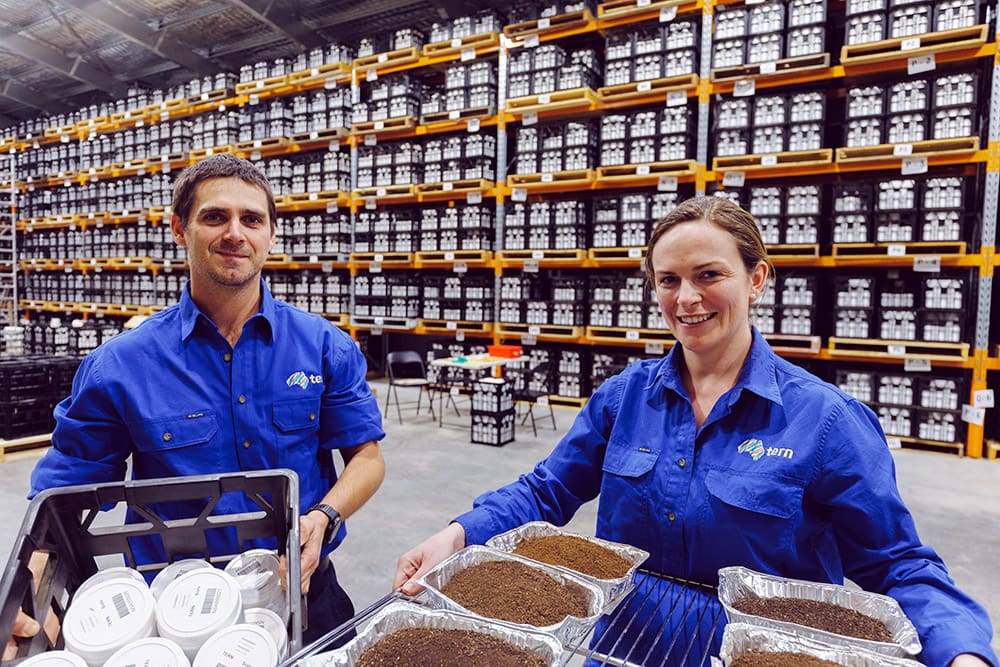TERN Soil Scientist Luke Finn and Field Officer Nikki Francis-Martin with soil samples in the new facility. Image: Nicolas Rakotopare, TERN
On the 8th of December, the TERN Australia Soil and Herbarium Collection facility was launched by the National Soils Advocate the Hon. Penny Wensley AC, at The University of Adelaide. Coinciding with the launch is news of international recognition from the Index Herbariorum. This global network of herbaria has registered the TERN Herbarium Collection, allowing it to join 48 other Australian herbaria on the global list, which totals 4,457.
With funding from the Australian Government’s national research infrastructure NCRIS grant and co-contributions from the State Government of South Australia and the University of Adelaide, this purpose-built treasure trove for ecologists brings together more than 150,000 soil and plant samples at the University’s Waite campus collected over 10 years from 900 sites across the country by TERN Australia.
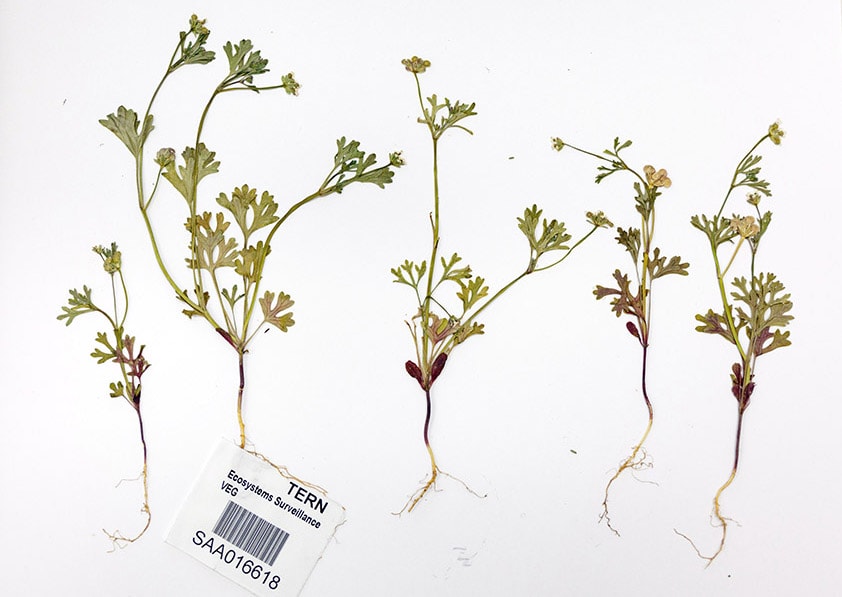
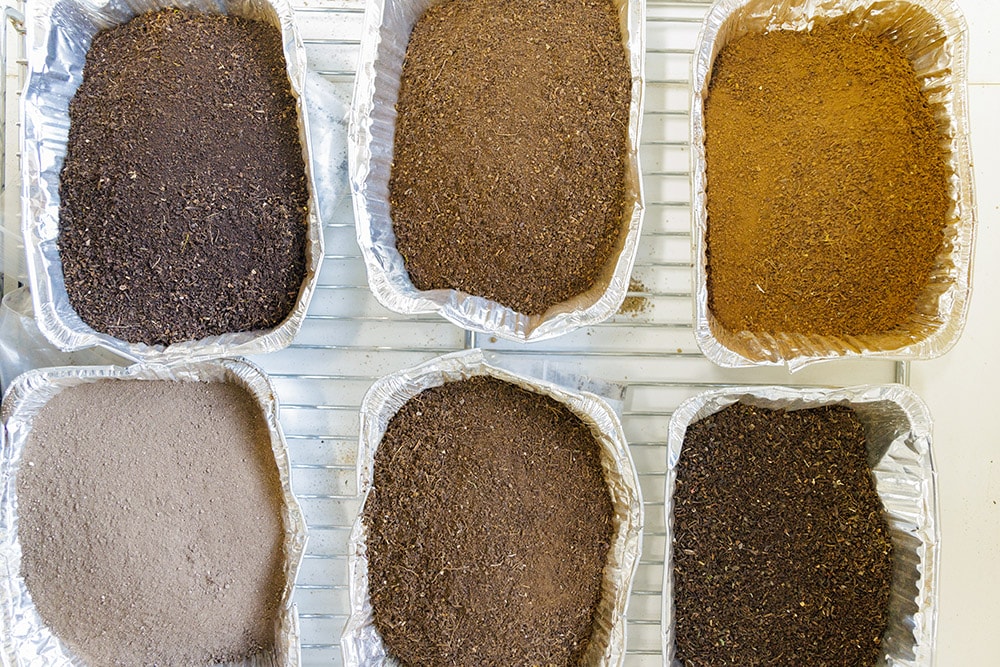
Associate Professor Ben Sparrow, TERN Program Lead at the University of Adelaide, said, “Unlike most soil and plant collections around the world, for each sample in the TERN collection scientists can access comprehensive environmental information about the 100m x 100m survey sites where they were collected and find every other sample collected at each site.
“That enables some really complex research which has traditionally been hard to do, such as on relationships between soils, plants, carbon and environmental conditions.”
“Botanists, ecologists and agricultural scientists are frequent users of this collection, but the samples can also be useful to microbiologists who look to the soil microbiome for a range of human health applications.”
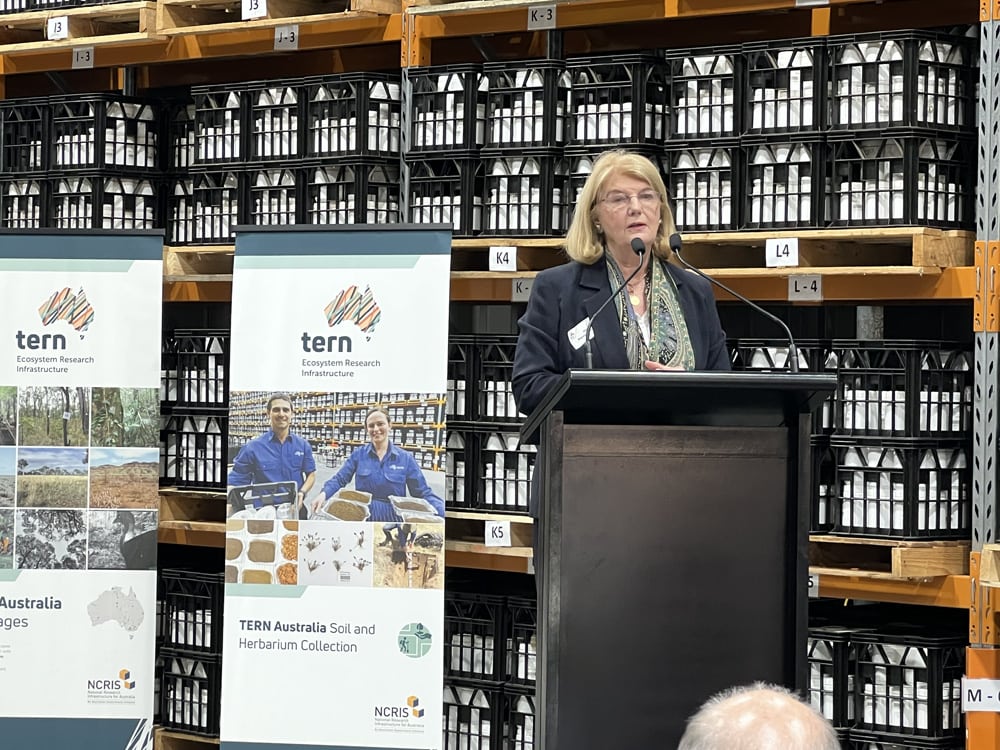
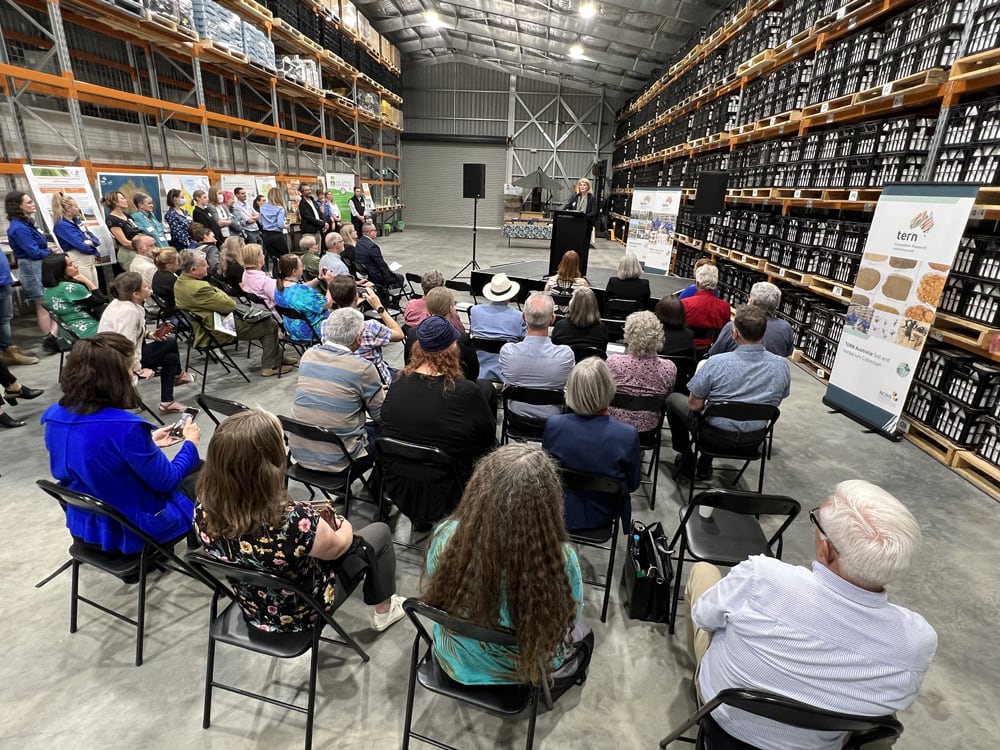
As the National Soils Advocate, the Hon. Penny Wensley AC raises awareness of the value of soils, of the economic and environmental benefits soils deliver and advocates for action to conserve Australia’s soils and improve soil health and management across Australia.
“I am very pleased to launch this new research facility. This state-of-the-art repository is a truly exciting addition to Australia’s national research infrastructure”.
“The rich collection of soil and plant samples it houses will offer multiple opportunities and benefits for scientists and researchers, in Australia and overseas, opening up new pathways for ecosystem discovery and understanding”, Ms Wensley said.
“As National Soils Advocate, I am especially pleased by the prospect of the TERN Australia Soils and Herbarium Collection being used to extend our knowledge of soils. There is still so much we do not know about this vital resource, about the intricate connections between soils and plants and how carbon cycles through them, and the links between soil health and human health. With concerns deepening about the state of the environment and the impacts of climate change, we need to step up efforts to fill these knowledge gaps” Ms Wensley added.
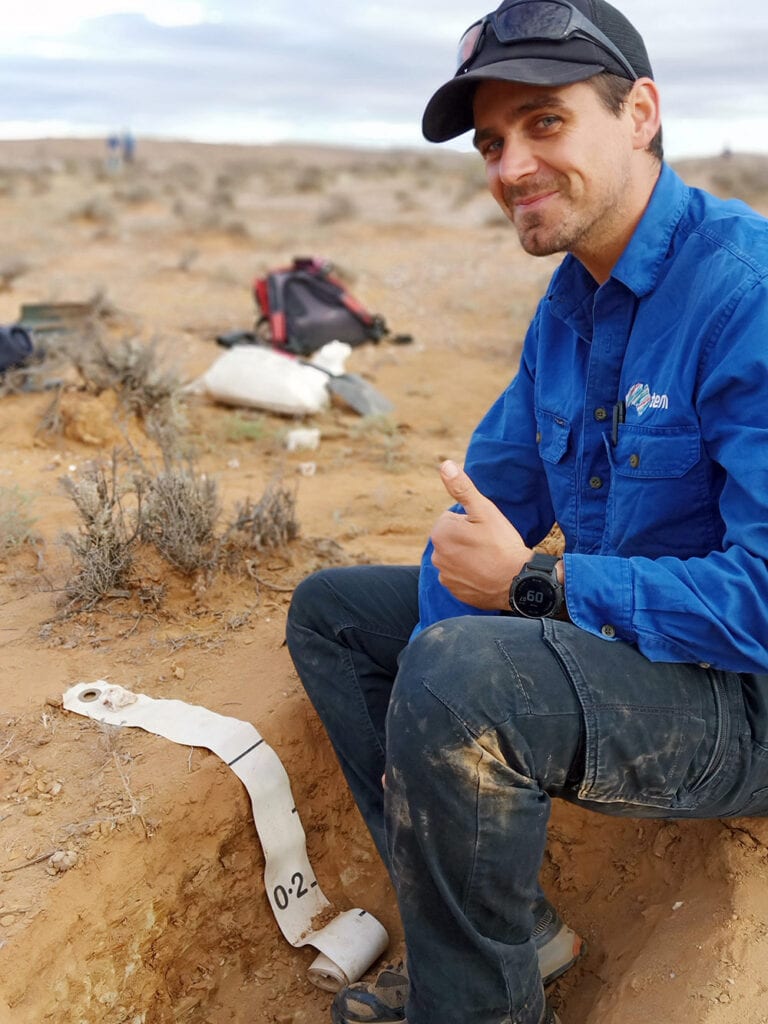
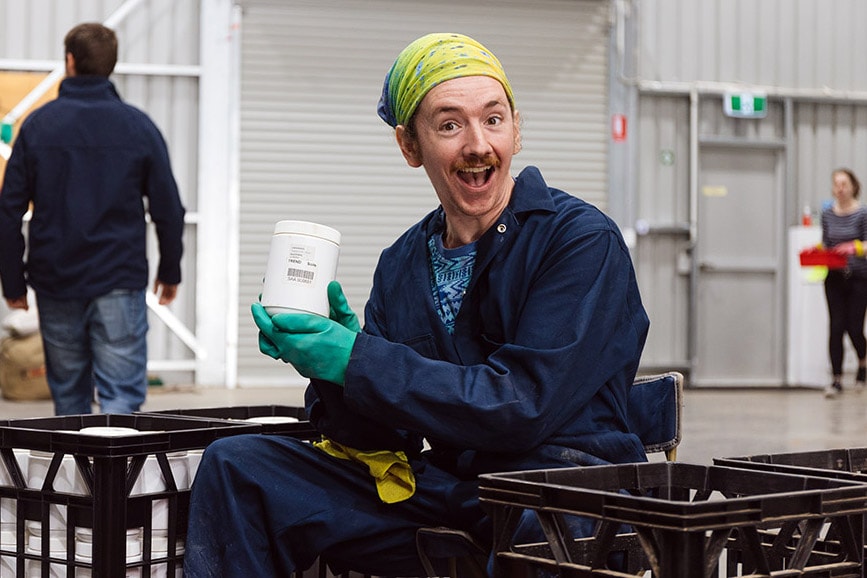
Professor Bruce Northcote, Pro Vice-Chancellor, Research Operations at The University of Adelaide, said the TERN Australia Soil and Herbarium Collection would allow the University to continue to invest in important research that was critical to solving real-world problems, particularly in the areas of climate science and sustainability.
“The University of Adelaide is a world leader when it comes to producing ground-breaking research that can be applied in everyday life,” Professor Northcote said.
“Research cannot happen without quality facilities, which is why we are delighted to have this wonderful TERN facility located at our Waite campus.”
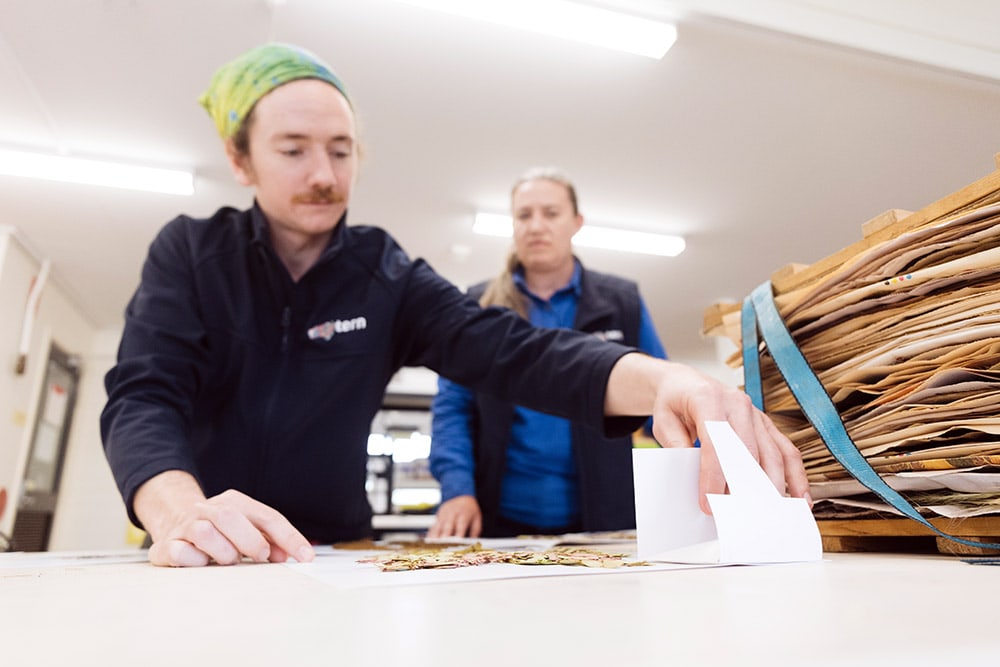
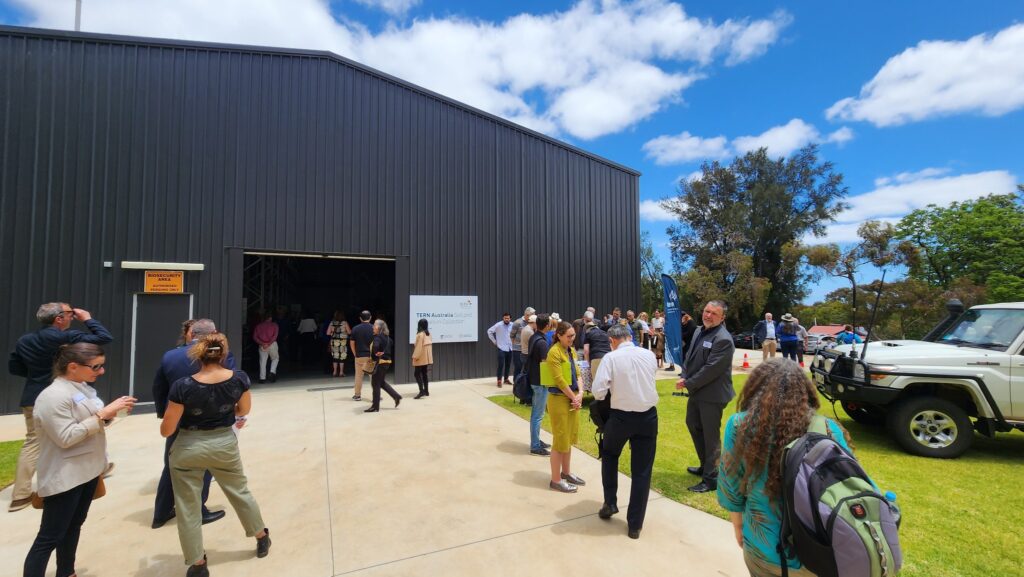
What is TERN Australia?
TERN Australia is the national ecosystem monitoring capability funded by the Australian Government, through the National Collaborative Research Infrastructure Strategy. Its freely available long term monitoring data and samples are used by researchers, government decision makers and industry in Australia and internationally.
TERN Australia’s Head Office is at the University of Queensland. Together with its university and CSIRO collaborators, TERN provides continental-scale ecosystem monitoring over time using sensors, sites and satellites.


